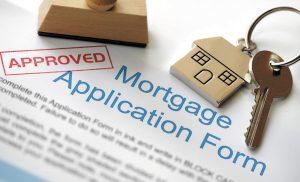 Everyone loves the thrill of searching for and finding their dream home, but applying for a mortgage? That’s not as thrilling. Even the initial process of securing a mortgage loan can be trying.
Everyone loves the thrill of searching for and finding their dream home, but applying for a mortgage? That’s not as thrilling. Even the initial process of securing a mortgage loan can be trying.
The most common slip-up buyers make when they apply for a home loan is choosing their lender based on who quoted the cheapest rate. One lender may offer a lower interest rate but could have higher fees which add to your total cost. Buyers should look at the whole picture—the rate, the points, and the fees associated with each loan—to determine which lender provides the best offer.
You can never be too prepared when applying for your mortgage. Here are a few tips to help you out.
Shape up Your Credit Score
Whether this is your first home purchase or your fifth, all buyers should know lenders look closely at potential mortgage payments relative to a buyer’s monthly income and debts. Most home lenders have a mortgage calculator on their website you can use to estimate your monthly payment based on your down payment, interest rate, and length of the mortgage.
As part of your formal application for a mortgage, your lender will perform a thorough review of your financial status. In addition to an examination of your income, assets, and employment, your lender will check your credit score, a sort of “report card” detailing your ability to pay bills on time and how much debt you carry. If you don’t know your credit score, there are many places where you can get a free credit report online.
Get Finances & Documents in Order
The key to having a smooth mortgage loan experience is getting your financial papers in order. As mentioned above, your lender will request a number of key documents, such as recent pay stubs, bank statements, and your last two years of tax returns. As you collect these documents, take a close look at your monthly bills and credit cards. Are you carrying large balances? If possible, reduce or eliminate them. Your lender will pay special attention to your debt-to-income ratio (all of your monthly debt payments divided by your monthly income). If it’s out of whack, you may be considered a higher risk, reducing the amount for which you qualify.
Tip: Don’t apply for any other lines of credit or close any credit cards in the weeks prior to applying for your mortgage, as these actions could negatively affect your credit score.
Pre-Qualified vs. Pre-Approved
When you begin the home buying process, it’s often a good idea to get pre-qualified or pre-approved for a loan. Let’s take a look at the differences.
To be “pre-qualified” means you’ve verbally detailed your financial situation to a lender and, based on that information, the lender will provide you with a letter noting the maximum price you can afford in a home. You can share it with agents and sellers as initial proof of your buying power.
To be “pre-approved” means your lender has done a thorough review and verification of your income, assets, employment, and credit check to determine you’re qualified for a loan. You’ll receive what’s known as a “preapproval letter” for an exact loan amount. This letter tells sellers you’re a buyer.
Pre-approval puts you on the fast track to securing your loan and will allow you to finalize a deal more quickly when you find the home you want. However, pre-approval is subject to your financial condition not materially changing. Don’t take on new debt, close credit card accounts, quit your job or any other significant action prior to closing your loan.
Five Terms to Know
If you’re buying a home for the first time, you may encounter unfamiliar real estate jargon. Here’s a look at five of the most common terms you’ll see:
- Closing Costs: These include items like appraisal fees, title insurance fees, pre-paid interest and documentation fees. They differ for each customer due to differences in the type of mortgage, the property location and other factors. Your loan estimate will detail the estimated closing costs associated with your loan.
- Escrow Account: This account will be used to collect your payments for property taxes, homeowner’s insurance and possibly other items in equal amounts over a 12-month period to be paid on your behalf when those bills come due.
- Mortgage Insurance: Mortgage insurance protects the lender against taking a financial loss in the event you, the buyer, stop making payments. It is required on mortgage programs requiring little or no down payment when the lender’s exposure is greater than 80% of the purchase price or appraised value, whichever is less. The mortgage insurance premium is typically included in your monthly mortgage payment.
- Title Insurance: Lender’s title insurance protects your lender against problems with the title that might occur, such as someone with a claim against your property. To protect your personal financial investment, you may want to purchase an owner’s title insurance policy, which protects you from any personal costs incurred if a fault in the title is found.
- Homestead Exemption: Homeowners in Florida are eligible to receive a valuable tax savings option called the homestead exemption. Your exemption can be up to $50,000, and the amount of property tax you owe is calculated based on the difference between your home’s value and the exemption amount. To be eligible, you must be a permanent resident of Florida who owns & occupies the property as of January 1 of the year in which you are applying for the exemption. The normal filing time for a homestead exemption begins on January 1 and lasts through March 1. Your application must be filed in person at the county property appraiser’s office. Once you submit an application, you will receive an automatic renewal card, and as long as there is no change, no action is required on your part.
The Perfect Partnership
 As you shop for a lender, keep in mind how critical the lender will be to the success of your home purchase. You want to feel comfortable with the person and the company and trust they are working on your behalf. Find a lender who offers a breadth of loan products that fit your needs and also has expertise in the local territory.
As you shop for a lender, keep in mind how critical the lender will be to the success of your home purchase. You want to feel comfortable with the person and the company and trust they are working on your behalf. Find a lender who offers a breadth of loan products that fit your needs and also has expertise in the local territory. ![]()
Lynne Hayes
Growing America
Special Thanks to Charlotte Dodson from Farm Credit of Northwest Florida
Farm Credit of Northwest Florida offers competitive rates and loan terms for both rural and in-town homes and can finance properties with no acreage limitations whether you are building, purchasing or refinancing. Farm Credit of Northwest Florida is committed to helping you qualify, apply and be approved for a mortgage loan that fits your needs and your budget. To contact Farm Credit of Northwest Florida, call 855-GoRural or visit us at: GoRural.net




